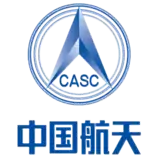China Aerospace Science and Technology Corporation
The China Aerospace Science and Technology Corporation (CASC) is the main contractor for the Chinese space program. It is state-owned and has a number of subordinate entities which design, develop and manufacture a range of spacecraft, launch vehicles, strategic and tactical missile systems, and ground equipment. It was officially established in July 1999 as part of a Chinese government reform drive, having previously been one part of the former China Aerospace Corporation. Various incarnations of the program date back to 1956.
 | |
Native name | 中国航天科技集团公司 |
|---|---|
| Type | State owned |
| Industry | aerospace, space industry |
| Predecessor | China Aerospace Corporation |
| Founded | July 1, 1999 |
| Headquarters | , |
Area served | Worldwide |
Key people | Lei Fanpei (Chairman and President)[1] |
| Products | Spacecraft Missiles Electronics |
| Revenue | CN¥294.02 billion[2] (2013) |
| Owner | SASAC |
Number of employees | 174,000 (2014) |
| Website | english.spacechina.com |
| China Aerospace Science and Technology Corporation | |||||||
|---|---|---|---|---|---|---|---|
| Simplified Chinese | 中国航天科技集团公司 | ||||||
| Traditional Chinese | 中國航天科技集團公司 | ||||||
| |||||||
Along with space and defence manufacture, CASC also produces a number of civilian products such as machinery, chemicals, communications equipment, transportation equipment, computers, medical care products and environmental protection equipment.[3] CASC provides commercial launch services to the international market and is one of the world's most advanced organizations in the development and deployment of high energy propellant technology, strap-on boosters, and launching multiple satellites atop a single rocket. By the end of 2013, the corporation has registered capital of CN¥294.02 billion and employs 170,000 people.[2] Its Rainbow series of drones in December 2019 was being exported to Saudi Arabia, the United Arab Emirates, Egypt and Pakistan.[4]
Subordinate entities
R&D and production complexes
- China Academy of Launch Vehicle Technology (CALT)
- Academy of Aerospace solid Propulsion Technology (AASPT)
- China Academy of Space Technology (CAST)
- Academy of Aerospace Liquid Propulsion Technology (AALPT)
- Sichuan Academy of Aerospace Technology (SAAT)
- Shanghai Academy of Spaceflight Technology (SAST)
- China Academy of Aerospace Electronics Technology (CAAET)
- China Academy of Aerospace Aerodynamics (CAAA)
Specialized companies
- China Satellite Communications[5]
- APT Satellite International
- China Great Wall Industry Corporation Limited (CGWIC)[6][7]
- China Aerospace International Holdings
- Beijing Shenzhou Aerospace Software Technology Co, Ltd.
- China Spacesat Co. Ltd.[8]
- China Siwei Surveying and Mapping Technology Co, Ltd
- China Aerospace Investment Holdings[9]
- Easy Smart Limited (易颖有限公司)[9]
Directly subordinated units
The "directly subordinated units" of the China Aerospace Science and Technology Corporation are:
- China Astronautics Standards Institute
- China Astronautics Publishing House
- Space Archives
- Aerospace Communication Center
- China Space News
- Chinese Society of Astronautics
- Aerospace Talent Development & Exchange Center
- Aerospace Printing Office
Development work
In October 2013, the China Aerospace Science and Technology Corporation announced that it had completed a first ignition test on a new LOX/Liquid methane rocket engine. No engine size was provided.[10]
Earth imaging effort
On December 28, 2016 the company launched Superview 1A and 1B aboard a LongMarch 2D rocket, two Earth imaging satellites equipped with 0.5 meter optical resolution. These satellites were described at the time as the first of an eventual 24-satellite constellation composed of 16 optical satellites, 4 high-resolution optical satellites, and 4 radar imaging satellites. The company initially planned to launch the satellites at a rate of 2 per year, with completion scheduled for 2022. The company planned to compete with international providers to sell imagery to both government and commercial customers.[11]
Controversy
In November 2020, Donald Trump issued an executive order prohibiting any American company or individual from owning shares in companies that the United States Department of Defense has listed as having links to the People's Liberation Army, which included CASC.[12][13][14]
See also
References
- China Aerospace Science and Technology Corporation. "Leaders - CASC". Retrieved 31 December 2014.
- China Aerospace Science and Technology Corporation. "Company Profile - CASC". Retrieved 31 December 2014.
- Allen-Ebrahimian, Bethany (2020-06-24). "Defense Department produces list of Chinese military-linked companies, 20 years after mandate". Axios. Retrieved 2020-06-24.
- Chen, Stephen (20 December 2019). "Chinese scientists create 'game-changer' methanol battery that keeps drone in the air for 12 hours". Retrieved 22 December 2019.
- "China Satcom taken over amid telecom reshuffle". China Daily. Retrieved 21 June 2011.
- Messier, Doug (2013-09-28). "China to Hold Long March Pricing Steady". Parabolic Arc. Retrieved 2014-12-14.
- "About CGWIC". CGWIC. Archived from the original on 2008-07-08.
- https://sciencemetro.com/space/chinese-space-resource-utilization-firm-origin-space-signs-deal-for-space-telescope/, 10 April 2020, accessed 16 May 2020.
- 易穎有限公司 (in Chinese). China Aerospace Investment Holdings. 12 April 2012. Archived from the original on 11 January 2019. Retrieved 19 July 2017.
- Messier, Doug (2013-10-24). "Guess Who Else is Developing a LOX Methane Engine". Parabolic Arc. Retrieved 2013-10-25.
- Lei, Zhao. "Satellites' images will open up market". China Daily. Retrieved 2016-12-29.
- Chen, Shawna (November 12, 2020). "Trump bans Americans from investing in 31 companies with links to Chinese military". Axios. Retrieved November 12, 2020.
- Pamuk, Humeyra; Alper, Alexandra; Ali, Idrees (2020-11-12). "Trump bans U.S. investments in firms linked to Chinese military". Reuters. Retrieved 2020-11-12.
- Swanson, Ana (2020-11-12). "Trump Bars Investment in Chinese Firms With Military Ties". The New York Times. ISSN 0362-4331. Retrieved 2020-11-13.
External links
- Official website (in Chinese)
- Official website
- Global Security